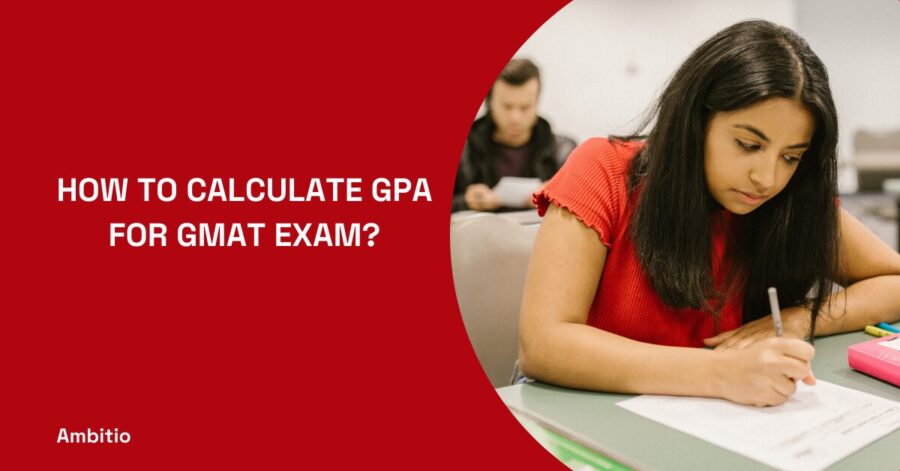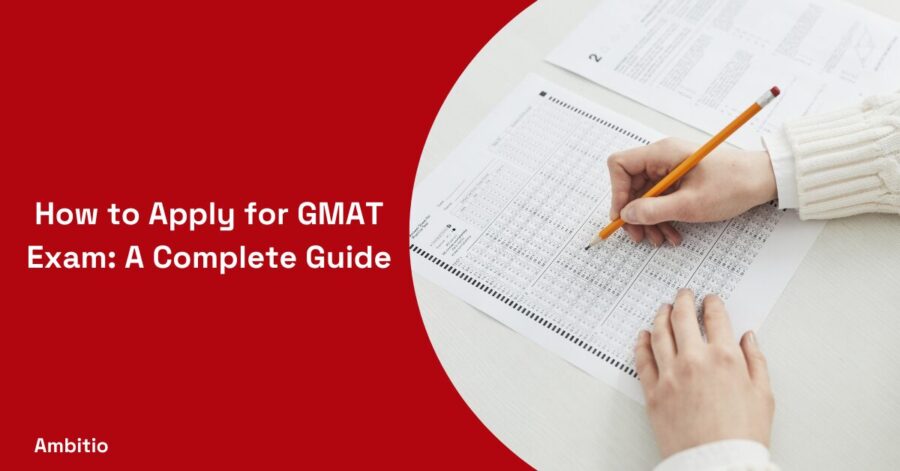12 December 2024
6 minutes read
Breaking the GMAT 700 Barrier: A Comprehensive Guide to Achieving a 740 Score

The GMAT, or Graduate Management Admission Test, stands as a formidable barrier for those aspiring to gain admission to prestigious business schools. With the competitive landscape of MBA programs, a score of 700 or higher on the GMAT has become a coveted achievement. In this comprehensive guide, we will delve deeper into the strategies, tips, and myths surrounding breaking the GMAT 700 barrier and ultimately aiming for a stellar 740 score.
Understanding the GMAT
GMAT Structure
To conquer the GMAT, you must first understand its structure. The GMAT is divided into four sections:
- Analytical Writing Assessment (AWA): You’ll be required to analyze an argument and write a critique.
- Integrated Reasoning (IR): This section assesses your ability to evaluate information from multiple sources.
- Quantitative (Quant) Section: Measures your mathematical skills.
- Verbal Section: Evaluate your ability to read, comprehend, and critique written material.
Your overall score is primarily based on your performance in the Quant and Verbal sections, both scored independently on a scale of 0 to 60. Achieving a score of 700 or above necessitates mastering these two sections, but how can you effectively do that?
Study Plan: Your Roadmap to Success
Creating a well-structured study plan is the foundation upon which you’ll build your path to breaking the GMAT 700 barrier and achieving a 740 score. Here, we’ll delve deeper into the key components of an effective study plan, providing you with a comprehensive roadmap to success.
1. Assess Your Weak Areas
Before you dive into GMAT preparation, it’s crucial to understand where you stand. Take a diagnostic test, preferably an official GMAT practice exam, to evaluate your current skills. This assessment will not only provide a baseline score but also reveal your strengths and weaknesses.
Once you’ve completed the diagnostic test, analyze the results meticulously. Pay attention to:
- Quantitative Proficiency: Identify the areas within the Quant section where you perform well and those where you struggle. Is it algebra, geometry, or statistics?
- Verbal Aptitude: Assess your verbal skills, considering your performance in critical reasoning, sentence correction, and reading comprehension.
- Time Management: Note how you handle time during the exam. Did you finish all sections, or did you run out of time?
With a clear understanding of your strengths and weaknesses, you can tailor your study plan to address the areas that need the most improvement.
2. Set a Target Score
One of the most critical aspects of your study plan is setting a target score. Your target score should align with the requirements of the business schools you aspire to attend. While a 700 score is often seen as the initial benchmark, consider aiming higher, preferably for a 740 or more.
To determine your target score, research the admission requirements of your target business schools. Find out their average GMAT scores for admitted students and aim to surpass those scores to make your application stand out.
3. Create a Study Schedule
With your target score in mind, it’s time to create a detailed study schedule. A well-structured study plan should encompass several weeks or even months, depending on your current level of preparation and your target score.
Here’s how to craft an effective study schedule:
- Daily Commitment: Decide how many hours per day you can devote to GMAT preparation. Be realistic about your other commitments, such as work or school.
- Weekly Goals: Break down your study plan into weekly goals. Outline what topics or question types you’ll cover each week.
- Regular Practice: Allocate specific times for practice exams and review sessions. Regularly taking full-length practice tests under timed conditions is essential for simulating the actual test experience.
- Flexibility: While a structured schedule is crucial, allow for some flexibility to adjust your plan as needed. If you find that a particular topic requires more attention, be ready to adapt your schedule accordingly.
- Rest Days: Don’t forget to include rest days in your schedule. Burnout can hinder your progress, so ensure you have time for relaxation and rejuvenation.
4. Use Quality Prep Materials
The quality of your study materials can significantly impact your preparation. Invest in reputable GMAT prep materials, such as:
- Official GMAT Guides: The official guides published by GMAC are invaluable resources. They contain real GMAT questions and practice exams.
- GMAT Prep Courses: Consider enrolling in a GMAT prep course, either in-person or online. Courses from reputable providers like e-GMAT can provide structured lessons and additional practice materials.
- Online Forums: Join GMAT forums like GMAT Club to connect with other test-takers, seek advice, and access a vast repository of practice questions and explanations.
- Additional Resources: Explore supplementary resources like GMAT flashcards, mobile apps, and study guides from well-known publishers.
Remember, the key is not just to accumulate study materials but to use them effectively as part of your study plan.
5. Practice Regularly
Consistent practice is the cornerstone of GMAT success. Make practice questions and mock exams a regular part of your study routine. Here are some tips for effective practice:
- Categorize Practice: Based on your diagnostic test results, categorize practice questions by difficulty level and topic. Ensure you cover a mix of easy, medium, and hard questions.
- Review and Analyze: After completing a practice set or mock exam, review your answers thoroughly. Understand why you got certain questions wrong and learn from your mistakes.
- Timed Practice: As your test date approaches, shift your focus toward timed practice to improve your pacing and time management skills.
6. Focus on Time Management
Time management is a crucial skill for the GMAT. During your preparation, prioritize developing effective time management strategies:
- Pacing Practice: Regularly practice completing sections within the allocated time limits. Use a timer to simulate test conditions.
- Section Order: Experiment with different section orders (Verbal first, Quant first, etc.) to find the sequence that works best for you.
- Skip and Return: Learn when to skip difficult questions and come back to them later. Sometimes, moving on to easier questions can save valuable time.
By incorporating these strategies into your study plan, you’ll be better equipped to handle the time constraints of the actual GMAT exam.
Debunking Myths
1. The Perfect Score Myth
One of the great GMAT myths is the belief that you must answer every question correctly to score well. In reality, GMAT scoring is complex. Your score depends on various factors, including question difficulty and the order in which you answer questions. Leaving some questions unanswered at the end might not have as much of an effect on your score as you think.
2. The Quant vs. Verbal Myth
Many test-takers concentrate heavily on improving their Quant score, assuming it’s the most crucial. However, a strong verbal performance can significantly impact your score. Achieving at least the 80th percentile in both sections can compensate for a weaker Quant performance.
The Power of Verbal Performance
Business schools want to see applicants who excel not only in quantitative skills but also in communication. A strong verbal performance can be a game-changer.
The 80th Percentile Rule
Many top business schools want their applicants to reach at least the 80th percentile in both the Quant and Verbal sections. This means your verbal performance should match your quantitative skills. So, if you’re weaker in Quant, excel in Verbal to compensate.
Excelling in Sentence Correction
Within the Verbal section, Sentence Correction can be a make-or-break factor. Business schools are interested in applicants who can communicate clearly and effectively. A strong grasp of grammar and syntax is essential to excel in this section.
Achieving a 740 Score
GMAT Scoring Demystified
To break the GMAT 700 barrier, you must understand how GMAT scoring works. Your overall score is not simply a sum of your Quant and Verbal scores. Instead, it’s derived from a more complex formula to which only GMAC (the organization that administers the GMAT) has access.
The Role of Subscores
Your Quant and Verbal subscores matter too. For example, a Quant score of 50 is better than a 49, and a Verbal subscore of 40 is superior to a 39. Focus on maximizing these subscores.
The Myth of the First Attempt
Another common myth is that your first attempt should be your best. While it’s great if you ace the GMAT on your first try, many test-takers improve their scores with subsequent attempts. Don’t be discouraged if you don’t hit your target score initially.
Importance of Business Schools
Business schools take a holistic view of your application. While a high GMAT score is crucial, it’s not the only factor. Your work experience, recommendation letters, and personal statement all play significant roles in the admissions process.
Test Day Strategies
Leave No Question Unanswered
On test day, give each question your best shot. The GMAT penalizes you more for unanswered questions than for incorrect ones. Don’t leave any questions unanswered at the end of a section.
Manage Time Effectively
Pacing is crucial. Practice time management during your preparation to ensure you can answer all questions in the allotted time.
Don’t Panic
Test anxiety can negatively impact your performance. Develop relaxation techniques to keep your nerves in check on the big day.
Conclusion
Breaking the GMAT 700 barrier and aiming for a 740 score is an achievable goal with the right strategies, dedication, and understanding of the test. Remember, it’s not just about reaching a number; it’s about showcasing your readiness for MBA programs and achieving your educational goals.
As you embark on this challenging journey, keep in mind that your hard work and determination will not go unnoticed by business schools. Good luck on your GMAT journey, and may you ace the test and secure your spot in the MBA program of your dreams!
FAQs
Is a score of 700 enough for top business schools?
While a score of 700 is competitive, top business schools often expect scores in the 700s. Aim for a higher score to increase your chances of admission.
Should I focus more on Quant or Verbal preparation?
Both sections are crucial but don’t neglect Verbal. A strong Verbal score can compensate for a weaker Quant score.
Do I need to answer every question correctly to get a high score?
No, GMAT scoring is complex. It considers question difficulty and other factors. You can still get a high score with some unanswered questions.
How can I improve my time management during the GMAT?
Practice under timed conditions and develop a pacing strategy. Don’t spend too much time on any one question.

You can study at top universities worldwide!
Get expert tips and tricks to get into top universities with a free expert session.
Book Your Free 30-Minute Session Now! Book a call now




























